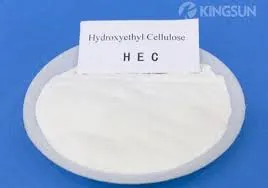
Hyd . 14, 2024 07:14 Back to list
Exploring Diverse Applications of Hydroxypropyl Methylcellulose in Various Industries
The Versatile Uses of Hydroxypropyl Methylcellulose
Hydroxypropyl methylcellulose (HPMC) is a cellulose ether derived from natural cellulose, which is a polymer of glucose found in the cell walls of plants. This biodegradable compound has gained wide popularity across various industries due to its unique properties, including high viscosity, thermal stability, and excellent film-forming ability. As a result, HPMC is utilized in a multitude of applications ranging from pharmaceuticals and food products to personal care items and construction materials.
Pharmaceutical Applications
One of the most significant uses of HPMC is in the pharmaceutical industry. It is commonly employed as a binder and film-coating agent in tablet formulations. Its ability to control the release of drugs makes it an essential component in sustained-release formulations. HPMC is also used in ophthalmic formulations as a lubricant to treat dry eyes, acting as a tear substitute. Moreover, its non-toxic, biocompatible nature ensures its safety when applied in various medicinal products.
Food Industry
In the food sector, HPMC serves multiple roles, primarily as a thickening, emulsifying, and stabilizing agent. Its presence in baked goods enhances texture and moisture retention while extending shelf life. In dairy products, HPMC improves viscosity and prevents separation, making it a favored ingredient in ice creams and sauces. Additionally, it is gluten-free, making it a valuable alternative in gluten-free recipes and food products, catering to the growing health trend among consumers seeking gluten-free diets.
Personal Care and Cosmetics
HPMC is a common ingredient in personal care products and cosmetics, valued for its thickening and stabilizing properties. In lotions and creams, it acts as an emulsifier, ensuring a smooth texture and even distribution of ingredients. Furthermore, due to its film-forming properties, HPMC is used in hair styling products, providing flexibility and hold without a stiff finish. Its ability to retain moisture also enhances the effectiveness of hydrating skincare products, making it a desirable component in the beauty industry.
hydroxypropyl methylcellulose uses

Construction Industry
The construction industry has also benefitted from the versatility of HPMC. It is widely used in cement and plaster formulations as a thickener and water-retention agent. HPMC improves the workability and adhesion of mortars, which is crucial for achieving optimal construction quality. Moreover, it reduces the amount of water required for mixing, consequently minimizing cracking and shrinkage during the drying process. This benefit makes HPMC a critical additive in various construction materials, including tile adhesives and repair mortars.
Textile Industry
In textiles, HPMC serves as a sizing agent and finishing agent. It improves the smoothness of fabrics and enhances dye uptake during the dyeing process. The natural biodegradable nature of HPMC aligns well with the growing demand for eco-friendly textiles, offering a sustainable solution for fabric treatment and finishing.
Other Applications
Beyond these primary industries, HPMC finds applications in various other fields. In the agricultural sector, it is used as a soil conditioner and stabilizer in controlled-release fertilizers. It improves soil structure and boosts the availability of nutrients, promoting better crop yields. Additionally, HPMC is utilized in the manufacturing of biodegradable films, contributing to environmentally-friendly packaging solutions.
Conclusion
Hydroxypropyl methylcellulose is a testament to the versatility of cellulose-based compounds. Its multifaceted applications span various industries, demonstrating its importance in modern manufacturing processes. As demand for sustainable and environmentally friendly materials continues to rise, HPMC will likely play an even more significant role in future innovations. From pharmaceuticals to food products and beyond, HPMC's ability to enhance functionality and improve quality ensures its presence in our daily lives. As research progresses, we can expect to discover even more applications and benefits of this remarkable compound, solidifying its status as a key ingredient across numerous sectors.
-
Unlocking the Benefits of HPMC Products: A Gateway to Versatile Applications
NewsAug.07,2025
-
Unleashing the Potential of HPMC Ashland: A Comprehensive Look
NewsAug.07,2025
-
Tile Bonding Cellulose: The Key to Superior Adhesion and Durability
NewsAug.07,2025
-
Hydroxypropyl Methylcellulose Powder: The Versatile Component in Modern Pharmaceuticals
NewsAug.07,2025
-
Hydroxyethyl Cellulose: The Versatile Solution for Various Industries
NewsAug.07,2025
-
Hydroxyethyl Cellulose (HEC): The Versatile Polymer for Various Applications
NewsAug.07,2025







